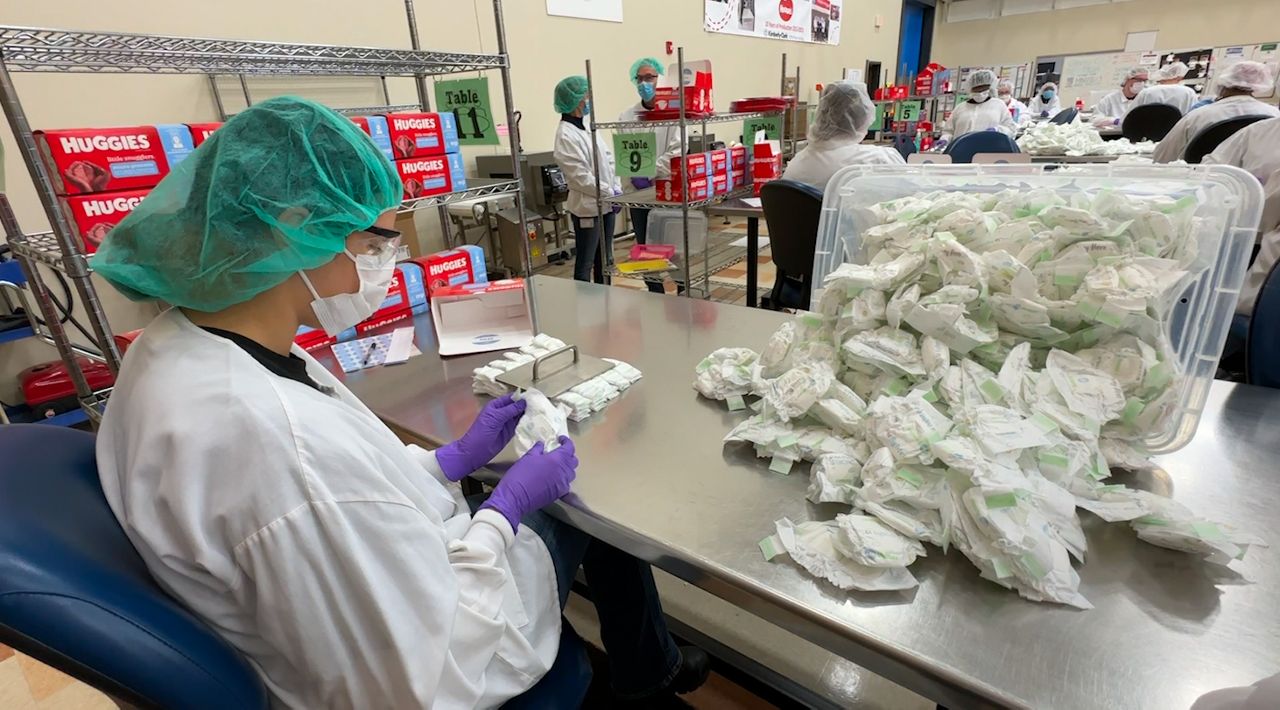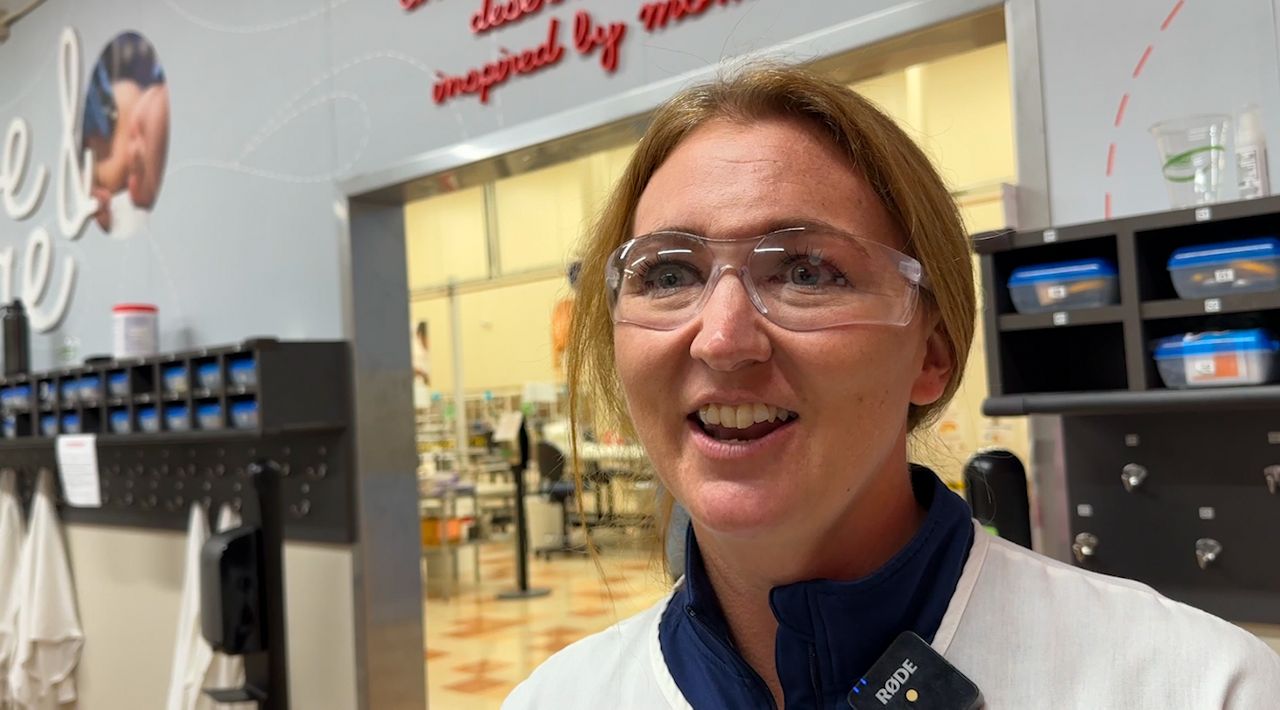NEENAH, Wis. — One at a time, Makayla Jesse inspects the tiny diapers at her work station. Around her, dozens of other people are doing the same thing.
Jesse is looking for dirt or any other imperfections in the tiny micro preemie Huggies diapers manufactured in a facility near Neenah.
“It makes me feel good because I know that I’m putting one step into help protect a small baby,” she said. “They aren’t very strong out of the womb, so we try to do this to give them a little bit of extra protection.”
Jesse and her coworkers are the last people to touch the diapers with gloved hands before they’re shipped off to neonatal intensive care units — know as NICUs — in hospitals.
She and the company occasionally hear from families helped by the diapers.
“They’ll be like, ‘Hey, this is my baby.’ They’ll send pictures and their story of how they were in the NICU and how our diapers helped them and their baby,” Jesse said. “It is nice to get a little bit of feedback sometimes.”

The micro preemies have been in production for a decade. More recently, the company started offering an even smaller nano option.
Emily Schmitz is the team leader in Neenah. An engineer, she was part of the development team in the nano diapers.
“It’s developed specifically for low-birth-weight babies. These are babies that are mostly in the NICU,” she said. “Our sizes are nano preemie, which is for babies up to two pounds and micro preemie, which is for babies up to four pounds.”
Schmitz said there’s some degree of personal touch in each diaper packaged.
“There are people who work here who have had children in the NICU or know friends and family that have had people in the NICU,” she said. “I think a lot of people are very proud to be working on this product that is doing service for healthy grown and development for these babies.”

Both are products of the Kimberly-Clark Prototype and Experimental Facility where Andy Grignon is the senior manager.
“The really neat thing about this facility that really makes it fun to get out of bed every day to go to work is we’re working on things right now that you probably aren’t going to seen the store shelves for three to five years,” he said. “We find a lot of things that work and we take it to market. We also figure out some things that are unsuccessful, but we get great learning from that and use that for future projects.”
At the packing table, Jesse said she keeps a watchful eye for anything that could be detrimental to the health and safety of some of the most vulnerable babies.
“I feel it helps them be a little bit stronger because they have another barrier of protection that we hand checked to make sure it was well for them,” she said.










